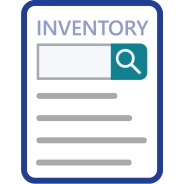
Choose from 5 options:
We help protect the health of Australians and our environment by finding out the risks of industrial chemicals and recommending ways to promote their safer use.
We replaced the National Industrial Chemicals Notification and Assessment Scheme (NICNAS) on 1 July 2020.
We regulate chemicals (including polymers) that are manufactured or imported into Australia for an industrial use, such as in inks, paints, adhesives, solvents, cosmetics and personal care products, cleaning products, as well as in manufacturing, construction and mining applications.
The Industrial Chemicals Act 2019 establishes the Australian Industrial Chemicals Introduction Scheme (AICIS) to regulate the importation and manufacture (introduction) of industrial chemicals in Australia.
In Australia, chemicals are regulated under both state/territory and national laws. At the national level, chemicals are regulated according to their use. There are 4 main regulatory authorities for chemicals – each focusing on a particular type of use:
If your chemical has multiple uses, you must follow the requirements of each applicable Australian Government and State or Territory regulatory body.
We define industrial use by exclusion. This means that an industrial use is any use that isn’t:
If you chemical has multiple uses, you must follow all regulations that apply for each use type.
To promote the safe use of industrial chemicals in order to protect human health and the environment, we:
The Department of Health and Aged Care's Annual Report contain details and statistics about our activities, including our achievements for each financial year.
State and territory authorities regulate and enforce appropriate chemical use, storage and disposal.
Please contact these other agencies or organisations who can expertly answer your questions about these topics.
|
Area/topic |
More information |
|---|---|
|
Asbestos |
|
|
Chemicals of a security concern |
|
| Chemicals used in food | Food Standards Australia and New Zealand |
| Chemicals used in medicine, therapeutic goods or classified as poisons | Therapeutic Goods Administration (TGA) |
| Chemicals used in animals and agriculture | Australian Pesticides and Veterinary Medicines Authority (APVMA) |
|
Defence |
|
| Emergency response to accidents involving toxic substances | Triple Zero |
|
Environment |
Department of Climate Change, Energy, the Environment and Water |
|
Fair trading and consumer protection Labelling and safety concerns about chemicals used in consumer products |
|
| Hazardous waste and managing chemicals in the environment | Department of Climate Change, Energy, the Environment and Water |
| Importing goods for personal use | Australian Border Force – Importing by post or mail |
|
Imports–prohibited and restricted |
|
|
Precursor chemicals–illicit drugs |
|
|
Poisons |
The Therapeutic Goods Administration's Standard for the Uniform Scheduling of Medicines and Poisons |
|
Transporting dangerous goods (explosives, flammable liquids, gases, corrosives and chemically reactive or highly toxic substances) |
Department of Infrastructure and Regional Development National Transport Commission (NTC) Civil Aviation Safety Authority (CASA) |
|
Workplace safety |
Safe Work Australia's Hazardous Chemical Information System Safe Work Australia's WHS regulators' contact information Model Code of Practice for managing the Risks of Hazardous Chemicals in the Workplace |
We assess the risks of industrial chemicals to human health and the environment by scientifically interpreting information about chemicals provided by industry (or obtained from other sources) in the context of the intended use of the chemical. Read the principles covering how and why we assess risk.
The full cost of administering AICIS is recovered through fees and charges paid by importers and manufacturers (introducers) of industrial chemicals.
The Executive Director of Australian Industrial Chemicals Introduction Scheme (AICIS) is an independent statutory office-holder appointed by the Governor-General with specific powers and functions under the Industrial Chemicals Act 2019. The current Executive Director is Graeme Barden.
The Executive Director is assisted by staff in the Australian Government Department of Health and Aged Care. Environmental risk assessments are done by staff in the Department of Climate Change, Energy, the Environment and Water under AICIS.
View the Department of Health and Aged Care's organisational chart.
AICIS Statement of Intent (September 2023)
Statement of Expectations (September 2023)